Traveling Exhibits
Bedzin Ghetto Accordion Open
The exhibit Through the Eyes of Youth: Life and Death in the Będzin Ghetto tells the story of young people in the Jewish ghetto of Będzin (Poland) before, during, and after the Holocaust.
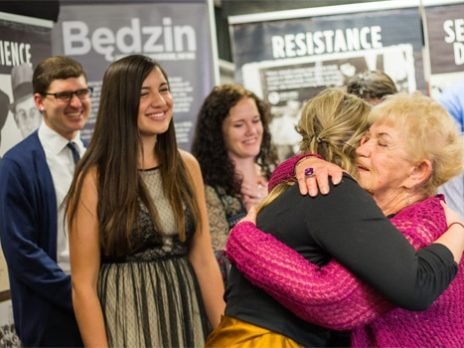
In 1939, Nazi Germany invaded Poland. German forces occupied the Polish city of Będzin, changing the lives of Jewish people forever. Forced into a cramped ghetto, the entire Jewish population was eventually deported to extermination camps. The youth of Będzin struggled with growing up amid violence, hatred, and loss, while still trying to find small joys in life.
The exhibit was inspired by Doris Martin, the founder of the Martin-Springer Institute. She grew up in Bedzin, and she and her family survived the Holocaust.
The exhibit has been shown in communities and schools in Arizona and New York. It has been translated into Polish and exhibited in Sosnowiec, Poland. It has also been shown in the South African Holocaust centers of Johannesburg, Durban, and Cape Town.
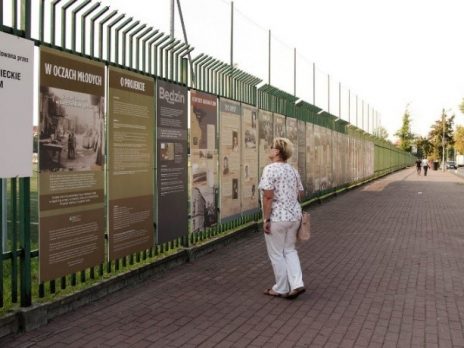
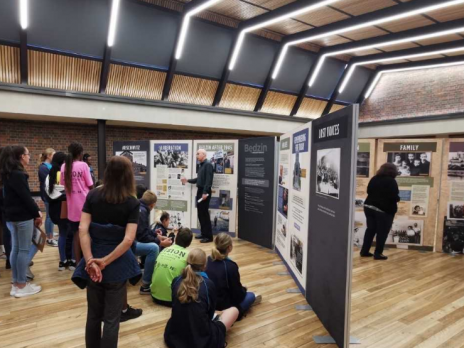
The exhibit can be requested from the Martin-Springer Institute for educational and community organizations, libraries, and other public venues.
The exhibit is augmented and accompanied by a website and is made possible through the Martin-Springer Institute under the directorship of Dr. Björn Krondorfer.
The Johannesburg Holocaust & Genocide Center created a video of the exhibit. It is about 8 minutes long and introduces some of the themes of this exhibit.
Resilience Accordion Closed
The exhibit Resilience: Women in Flagstaff’s Past and Present tells the stories of women from the 1880s to today who have overcome personal hardship, adverse environments, painful legacies, and economic woes. Their stories about building and rebuilding their lives in the face of adversity speak to their resourcefulness, perseverance, determination, prudence, and their caring spirit that holds communities together.
For a long time, the voices of women and minorities in Flagstaff have not been preserved in the official archives of knowledge. Resilience recovers forgotten histories and to honor the lives of women in the present. Women have employed entrepreneurial skills when Flagstaff was still a railroad and lumber town, made it their home after arriving from as far away as China, navigated the economic crisis of the 1930s, helped to integrate the town in the 1960s, embraced diversity, and created opportunities for the less-fortunate.
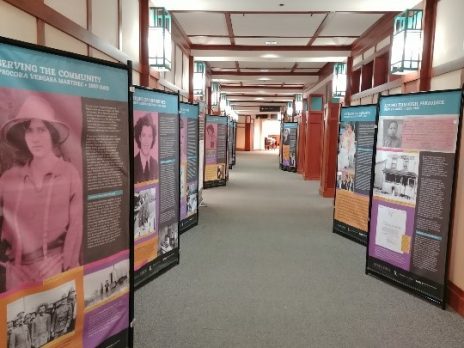
The exhibit is the result of a collaboration of Flagstaff’s Arizona Historical Society and the Martin-Springer Institute. The research team consisted of students from Northern Arizona University and faculty/staff mentors Bjorn Krondorfer, Sacha Siskonen, Bill Peterson, and Melissa Cohen.
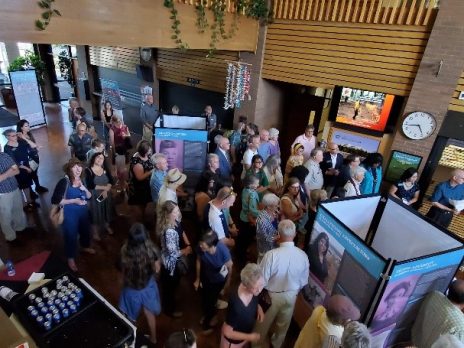
Nazi Olympics Accordion Closed
This exhibit, which explores the circumstances surrounding the 1936 Berlin Olympic Games, can be requested from the Martin-Springer Institute for educational and community organizations, libraries, and other public venues.
We have a teacher’s guide available to use either in conjunction with the exhibit or independently.
The traveling exhibit is made possible through the Martin-Springer Institute at Northern Arizona University.
All traveling exhibits are available for communities, schools, and other public venues. For more information, contact Melissa.Cohen@nau.edu